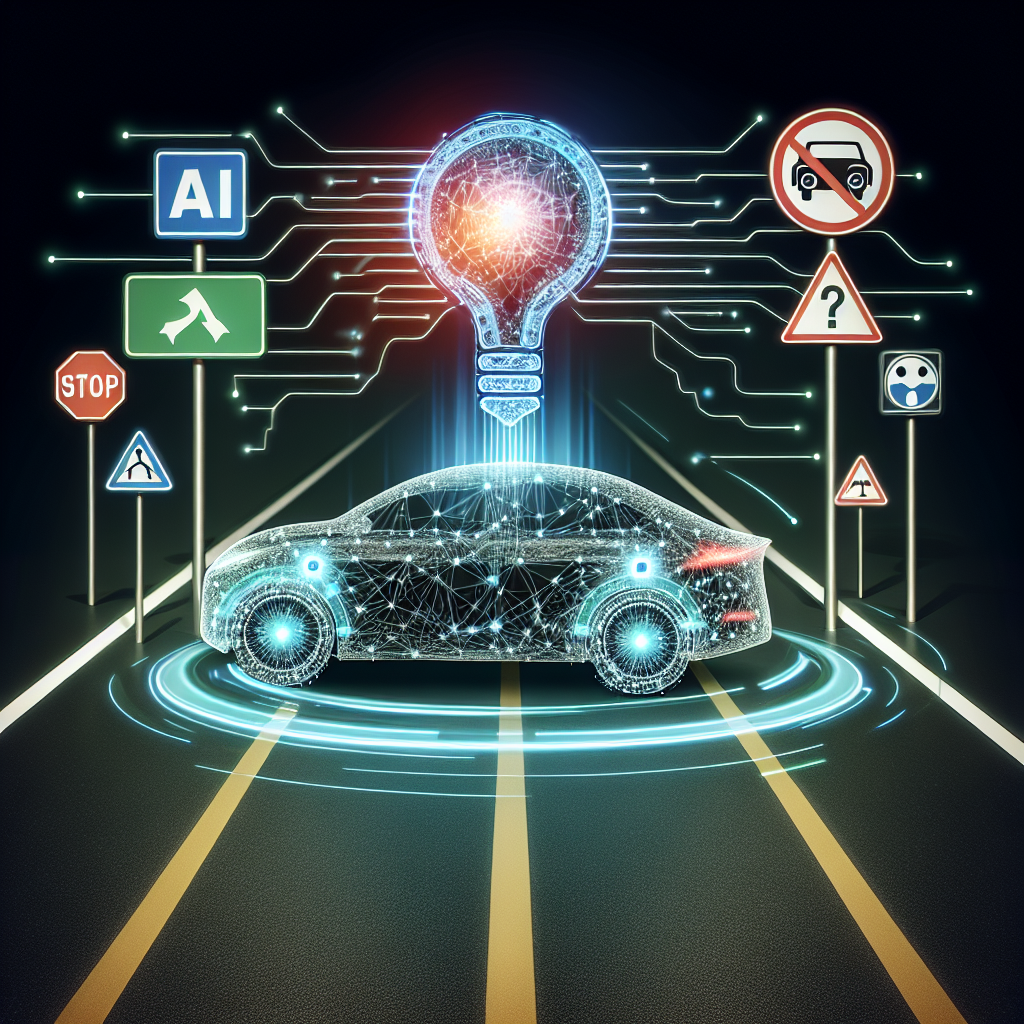AI and the Risks of Autonomous Vehicles: Can We Trust Them?
Autonomous vehicles, also known as self-driving cars, have been a hot topic in the tech world for several years now. These vehicles have the potential to revolutionize the way we travel, making roads safer and reducing traffic congestion. However, as with any new technology, there are risks involved with the implementation of autonomous vehicles, particularly when it comes to the artificial intelligence (AI) that powers them. In this article, we will explore some of the key risks associated with autonomous vehicles and discuss whether or not we can trust them to operate safely on our roads.
One of the biggest risks associated with autonomous vehicles is the potential for AI malfunctions. While AI has advanced significantly in recent years, it is still far from perfect. AI systems rely on vast amounts of data to make decisions, and if that data is flawed or incomplete, the AI may make errors that could lead to accidents. For example, if an autonomous vehicle encounters a situation that it has not been trained to handle, it may not know how to react appropriately, putting both the vehicle’s occupants and other road users at risk.
Another risk associated with autonomous vehicles is the potential for hacking. Like any computer system, autonomous vehicles are vulnerable to cyberattacks that could compromise their safety and security. Hackers could potentially take control of a vehicle’s AI system, causing it to behave erratically or even putting it in harm’s way. This is a serious concern, as the consequences of a hacked autonomous vehicle could be catastrophic.
Additionally, there are ethical concerns surrounding autonomous vehicles that must be addressed. For example, in the event of an unavoidable accident, how should an autonomous vehicle prioritize the safety of its occupants versus the safety of other road users? These are difficult questions that must be answered before autonomous vehicles can be trusted to make split-second decisions that could have life-or-death consequences.
Despite these risks, many experts believe that the benefits of autonomous vehicles outweigh the potential drawbacks. Proponents argue that autonomous vehicles have the potential to significantly reduce the number of accidents on our roads, as the vast majority of accidents are caused by human error. By removing the human element from driving, autonomous vehicles could make our roads much safer for everyone.
Furthermore, autonomous vehicles have the potential to revolutionize transportation in ways that we can only begin to imagine. For example, autonomous vehicles could make it easier for elderly or disabled individuals to get around, as they would not need to rely on others for transportation. Additionally, autonomous vehicles could reduce traffic congestion by optimizing traffic flow and reducing the number of accidents that cause delays.
In order for autonomous vehicles to be trusted on our roads, however, several key challenges must be addressed. First and foremost, AI systems must be rigorously tested and validated to ensure that they are capable of operating safely in a wide range of conditions. Additionally, regulations and standards must be put in place to govern the deployment of autonomous vehicles and ensure that they meet strict safety requirements.
FAQs:
Q: Are autonomous vehicles safe?
A: While autonomous vehicles have the potential to be safer than human-driven vehicles, there are still risks associated with their operation. AI malfunctions, hacking, and ethical considerations must be addressed before autonomous vehicles can be considered completely safe.
Q: How do autonomous vehicles work?
A: Autonomous vehicles use a combination of sensors, cameras, and AI algorithms to navigate the road and make driving decisions. These systems work together to detect obstacles, traffic signals, and other vehicles, allowing the vehicle to drive itself without human intervention.
Q: When will autonomous vehicles be widely available?
A: While autonomous vehicles are already being tested in some cities, widespread adoption is still several years away. Many technical, regulatory, and ethical challenges must be overcome before autonomous vehicles can be trusted on our roads.
Q: What are the benefits of autonomous vehicles?
A: Autonomous vehicles have the potential to reduce accidents, improve traffic flow, and increase access to transportation for elderly and disabled individuals. Additionally, autonomous vehicles could have a positive impact on the environment by reducing emissions and fuel consumption.
In conclusion, the risks associated with autonomous vehicles are real, but with proper testing, regulation, and oversight, these risks can be mitigated. The potential benefits of autonomous vehicles are significant, and they have the potential to revolutionize the way we travel in the future. While we may not be able to fully trust autonomous vehicles just yet, with continued advancements in AI and technology, we may soon be able to put our faith in these self-driving cars to safely navigate our roads.

